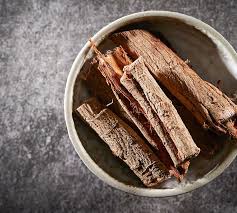The Role of Organic Herbs in Promoting Digestive Health

Organic herbs have been revered for their therapeutic benefits for centuries, especially in promoting digestive health. With a rising trend in natural and organic remedies, more people are turning to these traditional solutions to maintain a healthy gut. This article delves into the various organic herbs that support digestive health, offering an easy-to-follow guide on how to integrate them into your daily routine for maximum benefits.
1. Understanding the Importance of Digestive Health
The digestive system plays a vital role in breaking down food, absorbing nutrients, and eliminating waste. When this system is compromised, it can lead to issues such as bloating, constipation, and even more serious health problems. Maintaining good digestive health is essential for overall well-being, and organic herbs offer a natural way to enhance and support this critical body function.
2. How Organic Herbs Benefit Digestive Health
Many organic herbs possess anti-inflammatory, carminative, and soothing properties that help alleviate various digestive disorders. These herbs can:
- Reduce inflammation in the digestive tract.
- Stimulate digestive enzymes, aiding in proper digestion.
- Relieve symptoms of indigestion such as bloating and gas.
- Support the balance of gut flora, promoting a healthy gut microbiome.
3. Chamomile: Calming and Soothing the Digestive System
Chamomile is a well-known herb traditionally used to calm the digestive system. It contains anti-inflammatory and anti-spasmodic properties that can:
- Help reduce symptoms of indigestion, nausea, and diarrhea.
- Relax the stomach muscles and alleviate cramps.
- Soothe inflammation in the gut lining, reducing the risk of ulcers.
You can drink chamomile tea or take it in supplement form to enjoy these benefits.
4. Fennel: Promoting Healthy Digestion
Fennel has been used for centuries to support digestion. Its high concentration of fennel oil helps:
- Relieve bloating and gas by reducing the buildup of gas in the digestive tract.
- Stimulate the production of digestive enzymes, enhancing the breakdown of food.
- Relax the intestinal muscles, preventing constipation.
Crushed fennel seeds can be added to hot water to make a tea, or used as a spice in various dishes.
5. Turmeric: A Powerful Anti-Inflammatory Herb
Turmeric is famous for its active ingredient, curcumin, which is a powerful anti-inflammatory agent. It can:
- Reduce inflammation in the digestive tract, aiding in conditions like Crohn’s disease and colitis.
- Help maintain the gut microbiome balance, promoting the growth of beneficial bacteria.
- Enhance bile production, which supports the breakdown and absorption of fats.
To increase curcumin absorption, consume turmeric with black pepper, which contains piperine.
Read more about : https://wellshealthorganic.com/
6. Ginger: Easing Nausea and Enhancing Digestion
Ginger is widely recognized for its ability to ease nausea and promote digestive health. It can:
- Improve motility in the digestive tract, reducing symptoms of indigestion and gas.
- Enhance the production of digestive enzymes, which aids in the breakdown of food.
- Soothe the stomach lining, reducing irritation and discomfort.
Ginger can be consumed as a tea, in powdered form, or even added to your meals.
7. Licorice Root: Protecting the Gut Lining
Licorice root has a long history of use in traditional medicine for treating digestive issues. It works by:
- Coating the gut lining, providing a protective layer that prevents damage from stomach acid.
- Reducing inflammation in the gastrointestinal tract, which can help alleviate ulcers and acid reflux.
- Supporting healthy mucus production, which strengthens the gut barrier.
Licorice root is best consumed in moderation, as excessive use can cause adverse effects.
8. Marshmallow Root: Healing and Soothing the Gut
Marshmallow root is a demulcent herb that produces a soothing, gelatinous substance called mucilage. It can:
- Coat the digestive tract, providing a soothing layer that alleviates irritation.
- Reduce inflammation and prevent the development of digestive ulcers.
- Support the repair of the gut lining, promoting overall digestive health.
Marshmallow root can be taken as a tea, cold infusion, or in supplement form.
9. Slippery Elm: Supporting Gut Health with Mucilage
Slippery elm is another herb rich in mucilage, which helps:
- Soothe and coat the digestive tract, reducing irritation and promoting healing.
- Stimulate mucus production, protecting the gut lining from stomach acid and other irritants.
- Support healthy bowel movements, alleviating constipation.
To use slippery elm, you can make a tea or take it in capsule form.
10. Aloe Vera: A Natural Soothing Agent
Aloe vera is known for its soothing properties. It helps the digestive system by:
- Reducing inflammation in the gut, which can alleviate symptoms of IBS and colitis.
- Promoting the growth of beneficial gut bacteria, enhancing gut flora balance.
- Supporting healthy bowel movements, reducing constipation and promoting regularity.
Aloe vera can be consumed as juice or added to smoothies for a refreshing, gut-friendly drink.
11. How to Incorporate Organic Herbs into Your Diet
To fully reap the benefits of these organic herbs, consider incorporating them into your daily routine. You can:
- Prepare herbal teas: Use fennel, chamomile, or ginger to make soothing teas.
- Add herbs to meals: Include turmeric, fennel seeds, or ginger in your cooking.
- Take supplements: If consuming herbs through food is not possible, consider supplements as an alternative.
Final Thoughts: Why Organic Herbs are Essential for Digestive Health
Incorporating organic herbs into your diet is a natural and effective way to promote digestive health. They provide a range of benefits, from reducing inflammation to enhancing digestion. By understanding how these herbs work and how to use them, you can improve your digestive health and overall well-being. Understanding Why Blogs Are Essential in spreading awareness about the benefits of organic herbs is crucial, as they provide valuable information that can guide people in making informed decisions for their health.
The role of organic herbs in promoting digestive health cannot be overstated. With their natural healing properties and minimal side effects, they offer a holistic approach to maintaining a healthy digestive system. So, consider adding these powerful herbs to your daily routine for better digestive health and overall vitality.






